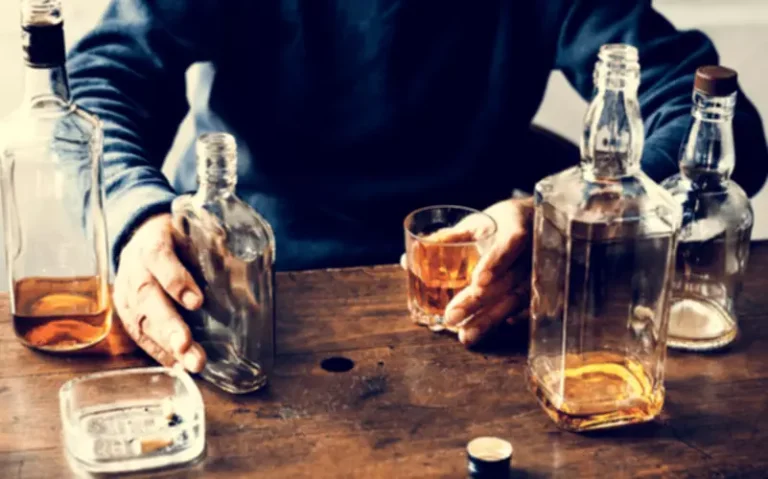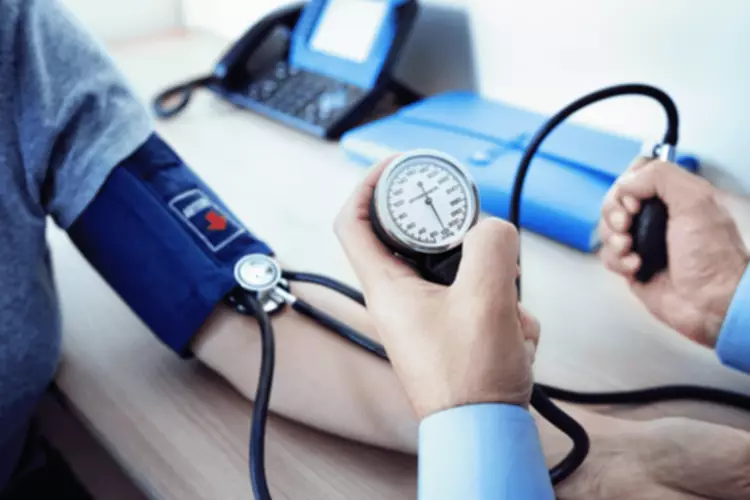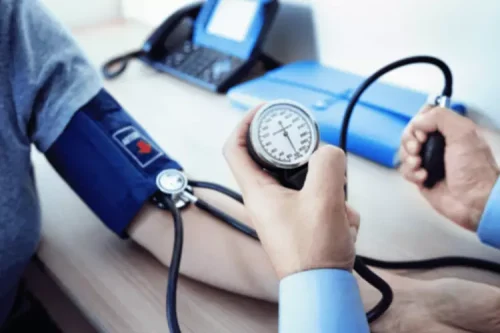
Patients who have had prior complicated withdrawals should not attempt to decrease their alcohol intake without consultation with their healthcare team. If a patient begins experiencing signs and symptoms of severe withdrawal, including but not limited to seizure, altered mental status, or agitation, they should seek emergency care immediately. When alcohol withdrawal syndrome has resolved, patients ought to be evaluated for AUD and offered treatment, if appropriate, including pharmacotherapy and behavioral treatment. The frequency and setting for outpatient monitoring of AWS should be guided by symptom severity, risk of complications, and social factors, including reliable social support and a safe home environment. Most patients will require daily evaluations for up to five days after their last drink, but evaluations may increase or decrease in frequency as necessitated by changes in symptom severity.8 These visits can be with any health care professional. Blood pressure, pulse, and alcohol breath analysis should be obtained whenever possible.
- This will lead to improved nutrition, which can profoundly impact your overall health, especially over time.
- “The more time that goes by, the clearer the picture becomes. I see my triggers, and I work through them. I’m always thirsty and drink a lot of water. I’m still not sleeping through the night.”
- Your healthcare provider will recommend and encourage treatment for alcohol use disorder.
- Medically, alcohol dependence is recognised as a type of ‘alcohol-use disorder’ which can be treated.
- Withdrawal progress is monitored through frequent check-up appointments within outpatient clinical settings (e.g., doctor’s office), allowing for the level of care to be escalated if needed.
- Those who experience the most severe withdrawal symptoms, such as hallucinations and seizures, don’t begin to have those symptoms until days four or five.
Healthy Skin, Feeling Better
These programs involve working with a team of mental health professionals in a group and individual setting. Millions of people join support groups to help stop drinking and stay stopped. Studies show support groups play an instrumental https://ecosoberhouse.com/ role in helping people develop healthy social networks that result in continued sobriety. Tap into your social network to help support you through alcohol withdrawal. Find a supportive friend or family member to be with you while you withdraw and support your new non-drinking lifestyle.
Lifestyle Quizzes

“I am going on seven weeks of being sober, and I could not be any happier.” “I feel great. To all those that are ready to give up because of withdrawals, hang in there! It does get better.” “I still feel really anxious and panicky and confused sometimes, especially in public.” “By day five, I started exercising, and by day seven, I cranked the intensity up from there. My skin and eyes look better, and the bloated stomach alcohol withdrawal is starting to recede.” “I am starting to feel more human. The exhaustion has gone away, and my concentration seems better.” “Sleep is a problem, but if I sleep at all, it is a good night. I think that I have always had the sleep disorder.”
Severe Symptoms
Find out what they are and what you should do if you are experiencing them. “I hope it helps someone to know the physical stuff will pass. I had a lot of odd symptoms and memory loss etc. but have noticed a definite improvement in the past week. I still crave alcohol, but it’s more the mental side now.” “I am feeling better than I have in a while, a long while. I still have a few side effects like sleeplessness, anxiety, irritability, and I crave sweets all the time.”
History and Physical
- Serious alcohol misuse can decrease your lifespan by as much as 28 years compared to those who don’t drink.
- “I needed professional help, as I had severe withdrawal symptoms of a DT nature with hallucinations, a possible seizure, and fear I would fall over dead any second. I went to the ER and detoxed five days in the hospital.”
- We do not offer individual medical advice, diagnosis or treatment plans.
- A rare but very serious syndrome called delirium tremens can occur during alcohol withdrawal.
- Alcohol (ethanol) depresses (slows down) your central nervous system (CNS).
- Treatment options vary from state to state, says Farrell, but generally, people have the option to engage in an outpatient program where they can begin identifying how their addictive behavior began in the first place.
Over time, the brain adjusts its own chemistry to compensate for the effect of the alcohol. It does this by producing naturally stimulating chemicals (such as serotonin or norepinephrine, which is a relative of adrenaline) in larger quantities than normal. Ashley Alt is a Connecticut-based writer specializing in women’s health and wellness content. As a mom of two, her areas of interest lie in subjects modern mothers seek information on, including mental health, self-care and beauty. When she isn’t writing, she can be found at spin class or on her patio with friends. Long-term treatment of AUD should begin concurrently with the management of AWS.8 Successful long-term treatment includes evidence-based community resources and pharmacotherapy.
Evoking calm: Practicing mindfulness in daily life helps
Alcohol withdrawal (alcohol withdrawal syndrome) is a range of symptoms that can happen if you stop or significantly reduce alcohol intake after long-term use. Although severe withdrawal symptoms can take up to a year to fully recover from, most people feel better within a week of stopping drinking. If you experience withdrawal symptoms, it’s one sign that you’re becoming dependent on alcohol.
MODERATE SYMPTOMS (CIWA-AR SCORE OF 10 TO 18 OR SAWS SCORE GREATER THAN

They can also help you manage any symptoms of alcohol withdrawal you experience when you stop drinking. As early as one week after stopping alcohol, you will likely begin to see benefits. The physical symptoms of withdrawal will be past their worst for most people, and the benefits of quitting alcohol will start to be noticeable.

If alcohol is interfering with your health or your personal, financial, or professional life, consider quitting. Medically, alcohol dependence is recognised as a type of ‘alcohol-use disorder’ which can be treated. It’s different to ‘harmful drinking’ (another type of alcohol-use disorder) which is a pattern of heavy drinking which causes damage to your health, but without actual dependence. Withdrawal symptoms are part of a condition called ‘alcohol withdrawal syndrome’, which is a reaction caused when someone who has become dependent on alcohol is deprived of it.
How To Stop Drinking Alcohol Safely
If you have severe vomiting, seizures or delirium tremens, the safest place for you to be treated is in a hospital. For delirium tremens, treatment in an intensive care unit (ICU) is often required. In an ICU, your heart rate, blood pressure, and breathing can be monitored closely in case emergency life-support (such as artificial breathing by a machine) is needed. These symptoms may start a few hours or a few days after your last drink of alcohol. Sometimes, symptoms may be severe enough to require medical treatment at a hospital or rehabilitation facility. Here are suggestions for how to get through alcohol withdrawal at home.
